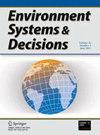Dynamics of the room: expert wrangling in the process of standard formation
Q1 Environmental Science
引用次数: 0
Abstract
Abstract This paper examines the dynamics of expert collaboration in industry standard development. The use of expert committees in the development of standards is common practice, and yet the operation of such groups tends to be a “black box.” Based on participant observation and interviews with committee participants, we examine the group dynamics within the subcommittee involved in a major update to one part of the Australian Standard for pipeline engineering, and the skills required of the Chair to obtain the best outcome. We address how the expert group is built, how the Chair leads them to a negotiated outcome, and how the Standard becomes socialized into the public domain. Agreement comes slowly, with some picking their battles, but many others repeatedly putting forward their views. The Chair exhibits three types of expertise (contributory, interactional, decision-making) which together are critical to resolving debates and, in effect, agreeing on the collective wisdom of the group.房间的动态:标准形成过程中的专家争吵
摘要本文研究了行业标准制定中专家合作的动态。在标准的开发中使用专家委员会是一种常见的做法,然而这样的小组的操作往往是一个“黑盒子”。根据参与者的观察和对委员会参与者的访谈,我们研究了小组委员会内部参与澳大利亚管道工程标准一部分重大更新的小组动态,以及主席获得最佳结果所需的技能。我们将讨论如何建立专家组,主席如何带领他们达成协商结果,以及标准如何融入公共领域。达成一致的过程是缓慢的,一些人挑起了自己的争论,但许多人反复提出自己的观点。主席展示了三种类型的专门知识(贡献型、互动型和决策型),它们合在一起对于解决辩论至关重要,实际上对小组的集体智慧达成一致。
本文章由计算机程序翻译,如有差异,请以英文原文为准。
求助全文
约1分钟内获得全文
求助全文
来源期刊

Environment Systems and Decisions
Environmental Science-Environmental Science (all)
CiteScore
9.00
自引率
0.00%
发文量
42
期刊介绍:
Aims and Scope:
Emerging challenges to infrastructure systems, industry, government, and society exhibit complexity, interconnectedness, uncertainties, and a variety of stakeholder perspectives. The Springer journal Environment, Systems & Decisions addresses diverse interests and perspectives of infrastructure owners, engineers, environmental professionals, regulators, policy makers, scholars, educators, and managers through technical articles, editorials, and review articles. The journal advances theory, methodology, and applications to address these challenges from a systems view, emphasizing connectedness of humans, machines, and the environment. Methods that arise in the physical, social, and information sciences and engineering are integrated or coordinated.
Submitted manuscripts should address interrelated social, technological, environmental, and economic systems with attention to performance, risk, costs, sustainability, and resilience. The ESD journal thus provides a catalyst for research and innovation in cross-disciplinary and transdisciplinary methods, featuring decision analysis, systems engineering, risk assessment and risk management, resilience analysis, policy analysis, data science, and communication. Manuscripts in a variety of application domains (engineering, military, environment, ecology, health, regulation, policy, technologies, logistics, manufacturing, etc.) are invited, particularly to feature problems and solutions that cross domains and envision future systems and processes.
Peer Review Policy:
Manuscripts are reviewed with due respect for the author''s confidentiality. At the same time, reviewers also have rights to confidentiality, which are respected by the editors. Environment Systems and Decisions uses a single-blind peer-review system, where the reviewers are aware of the names and affiliations of the authors, but the reviewer reports provided to authors are anonymous. Single-blind peer review is a traditional model of peer review that many reviewers are comfortable with, and the process supports a dispassionate critique of a manuscript. The editors ensure both the authors and the reviewers that the manuscripts sent for review are privileged communications and are the private property of the author.
 求助内容:
求助内容: 应助结果提醒方式:
应助结果提醒方式:


